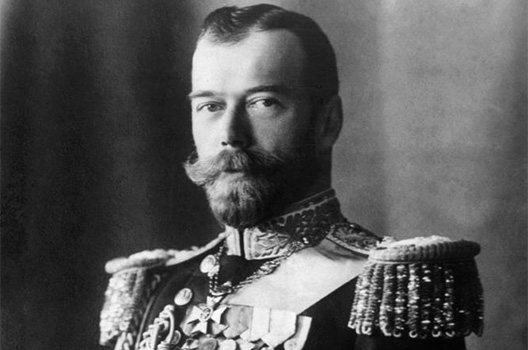
Moscow May Have a Plan to Subvert Kyiv, But it Wasn’t for Launch in 2014
Whether the Kremlin is improvising in its confrontation with Ukraine or following a well-established plan, it is clear that the Putin administration had hoped to postpone the showdown for at least several years. The Russian government anticipated that former Ukrainian President Viktor Yanukovych would have faced a difficult re-election campaign in 2015 and was taking steps to secure Russian interests. His fall a year ahead of schedule to an opposition movement that preferred to align Ukraine with Europe and the West forced Moscow to move before it was ready.
I am struck by the similarities of Putin’s problem today and that of Tsar Nicholas II exactly a century ago. The emperor, well aware that the European status quo was not tenable, also realized that Russia was unprepared for war. In 1911 he told his ambassador to Bulgaria, “It would be out of the question for us to face a war for five or six years–in fact until 1917–although if the most vital interests and the honor of Russia were at stake, we might, if it were absolutely necessary, accept a challenge in 1915; but not a moment sooner in any circumstances or under any pretext whatsoever.” Yet the Tsar was forced ahead of that schedule into a war that was to topple his throne and end his dynasty.
For Putin, this is not an auspicious time to enter into a cold peace (or even a cold war) with the West. As did Nicholas II, Putin undertook a series of military reforms, particularly to correct defects revealed during the Russia-Georgia conflict in 2008, that still are far from complete. Military purchases from French and Italian firms – most notably the French Mistral-class amphibious assault ship – are now jeopardized. A 2015 clash over Ukraine would have let Russia use the first of these helicopter carriers along Ukraine’s Black Sea coast. Now, at worst, the contracts will be cancelled; at best, the Russians have tried to keep the deal alive by promising to deploy the ships in the Pacific and not in the Black Sea. The only bright spot, from the Russian perspective, is that Paris has decided not to cancel the deal outright, but only to review whether the contracts can be fulfilled later this year.
Russia’s economy had stalled, with only anemic growth already predicted for 2014; the Ukraine confrontation now will challenge the Kremlin’s economic team be to keep the economy out of recession. This was the year that another significant wave of privatization was to have taken place; now, potential European buyers (who would become partners with the Russian state) are likely to be scared off from having the Kremlin as a business associate.
Most importantly, this is the year that construction is to begin on the South Stream gas pipeline, which, if completed, will end Russia’s dependence on Ukrainian pipelines to supply its central European customers, and thus let it more readily cut off Ukraine’s supplies when it chooses. So far, the European states through which the line is to be built – Bulgaria, Serbia, Hungary, and Austria – remain committed to starting on schedule this summer. Yet European Union institutions are seeking to block the project. If Europe does agree to impose broader, so-called third-level, sanctions against Russia, South Stream will be suspended or cancelled.
So if this crisis could have been put off for at least another year, Europe might have been even less willing to contemplate sanctions against Russia.
The Ukraine crisis also has changed the dynamics of the Russia-China relationship. Moscow has always sought to maneuver between Beijing and the West, to avoid over-dependence on either. For years, Gazprom, the state gas monopoly, has failed to reach a final agreement on the delivery of natural gas to China, holding out for a higher price than Beijing wanted to pay, secure in the assessment that Europe remained a reliable, high-paying customer for Russia. Now, Gazprom faces the possibility of sanctions and the loss of Europeans who are now talking openly about finding alternative suppliers. Thus the Russians see a long-term natural gas deal with China not as a luxury but as a necessity, which gives China a stronger hand in the talks to settle on a price. To the extent that even the current, limited sanctions dry up Russian access to Western markets and capital, Chinese substitutions will come at a higher price for Moscow.
Moscow’s gamble is that it can create “facts on the ground” in Ukraine, make some effort to assuage European concerns, and get relations back on track as soon as possible. But if a result of Russia’s Ukraine policy is a series of cancelled contracts (no Mistrals, no South Stream, no access to further Western capital and business deals), and less advantageous deals with the Chinese, Putin, like Nicholas II before him, may conclude that he was forced to act before he was really ready to move.
Nikolas K. Gvosdev is professor of national security affairs at the US Naval War College. He is co-author of Russian Foreign Policy: Interests, Sectors and Vectors (CQ Press, 2013). The views expressed are his own.
Image: Tsar Nicholas II of Russia, like President Vladimir Putin a century later, scrambled to modernize his army for a looming conflict, and faced the prospect of war before he was ready. (CC License)
